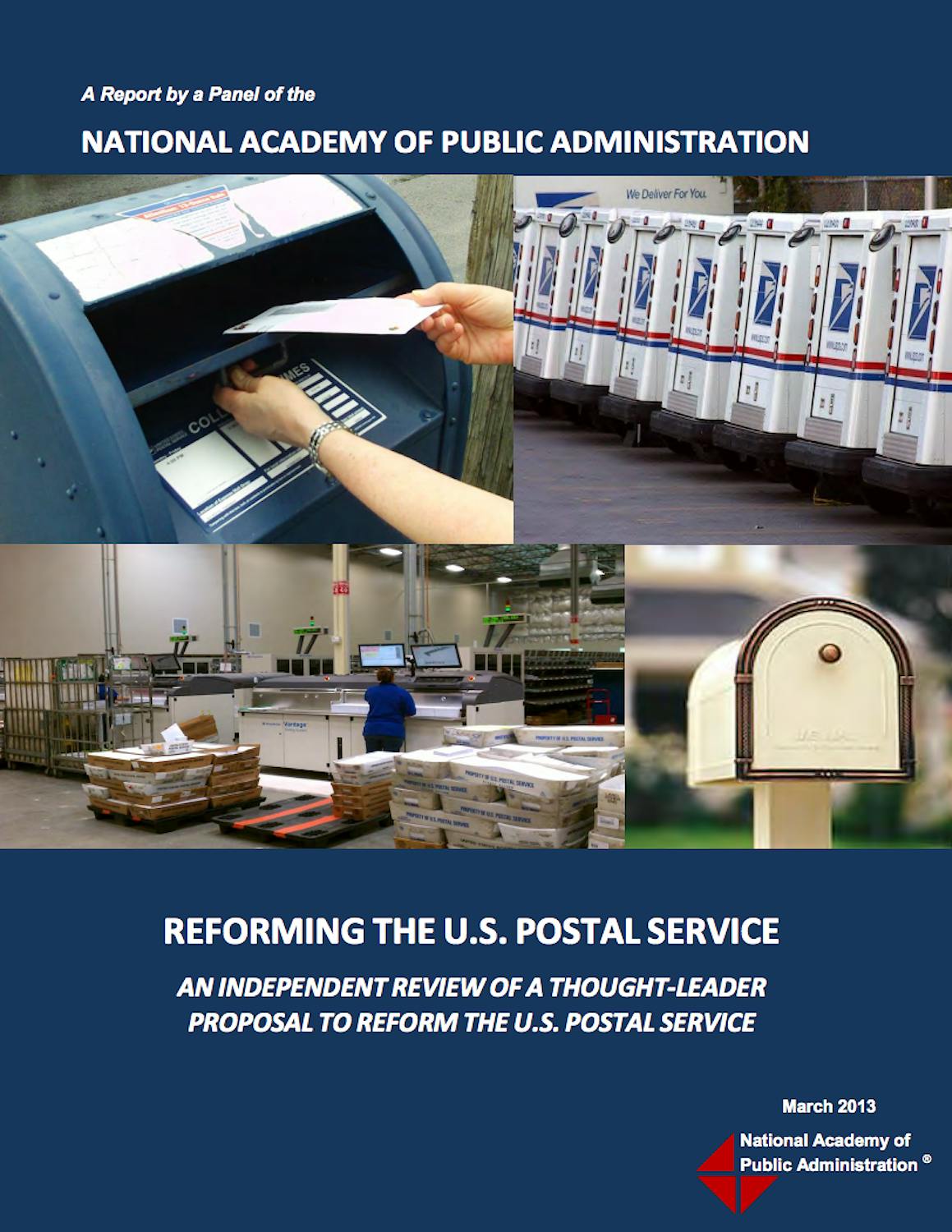
Reforming the U.S. Postal Service: An Independent Review of a Thought-Leader Proposal to Reform the U.S. Postal Service
Rapidly declining mail volumes and a range of other financial and operating factors have placed the US Postal Service under significant financial pressure that threatens its continued viability. In addition to other recent studies of proposed alternatives for Congress and the Postal Service to consider, a group of Thought-Leaders outside of the Academy’s Fellowship have proposed the development and implementation of a new model: a hybrid public-private partnership.
Under this proposed model, the Postal Service would be responsible for the “last mile” of delivery and collection, and the private sector would be responsible for handling all other aspects of the mail system.
The Academy formed a five-member Panel of Fellows, chaired by David M. Walker, to conduct a three-month study of this Thought-Leader Concept. In performing this independent review, the Panel and/or study team interviewed or received written comments from over 90 postal stakeholders representing the Postal Service, Collective Bargaining Units (CBUs), the Postal Regulatory Commission (PRC), Congress, competitors, mailers, the Government Accountability Office (GAO), and others. The Panel and/or study team also conducted a range of other research and analysis within the time frame available for the review.
Click the button below to view the View Study Report.
View ReportKey Findings
The Panel notes that many of the ideas outlined in the Thought-Leader Concept represent expansions of current public-private partnership initiatives already employed by the Postal Service and mailing community. In the Panel’s analysis, they consider a range of key issues, including legal/regulatory, financial, labor, integration/management, and other issues.
Recommendations
Further study will be essential before a realistic assertion of the Concept’s relative benefits can be made to the Postal Service, its regulator, Congress, mailers, consumers, and the wider community of companies connected with mail operations and paper-based communication. Furthermore, the Panel acknowledges that there are a number of important postal reform policy initiatives that are beyond the scope of the Thought-Leader Concept, but need to be considered as part of any comprehensive Postal Service reform and financial stabilization effort.
While the Panel cannot endorse implementation of the Thought-Leader Concept as presented, the Panel believes that it advocates for the Postal Service to utilize flexibilities that it already has. We conclude that this Concept merits serious consideration as part of a more comprehensive policy reform effort. A transition to upstream operations provided completely by private sector companies will generate new challenges since the Postal Service’s direct involvement in upstream operations is still substantial.
